Complete Solutions to Advance MCQs of chapter NEWTONS LAWS OF MOTION of Class 11 book with complete answers and questions
| Class 11 | PHYSICS |
| Chapter | NEWTONS LAWS OF MOTION |
| PHYSICS GALAXY | Advance MCQs |
| Number Of Questions | 17 |
| Academic Year | 2023-24 |
A particle is acted upon by a force of constant magnitude which is always perpendiculr to the velocity of the particle. The motion of the particle takes place in a plane. It follows that
View SolutionA reference frame attached to the earth
View SolutionWhen a bicycle is motion the force of friction exerted by the ground on the two wheels is such that is acts .
View SolutionA car C of mass `m_(1)`, rests on a plank of mass `m_(2)`. The plank rests on a smooth floor. The string and pulley are ideal. If the car starts and moves towards the pulley with certain acceleration, choose the incorrect option:
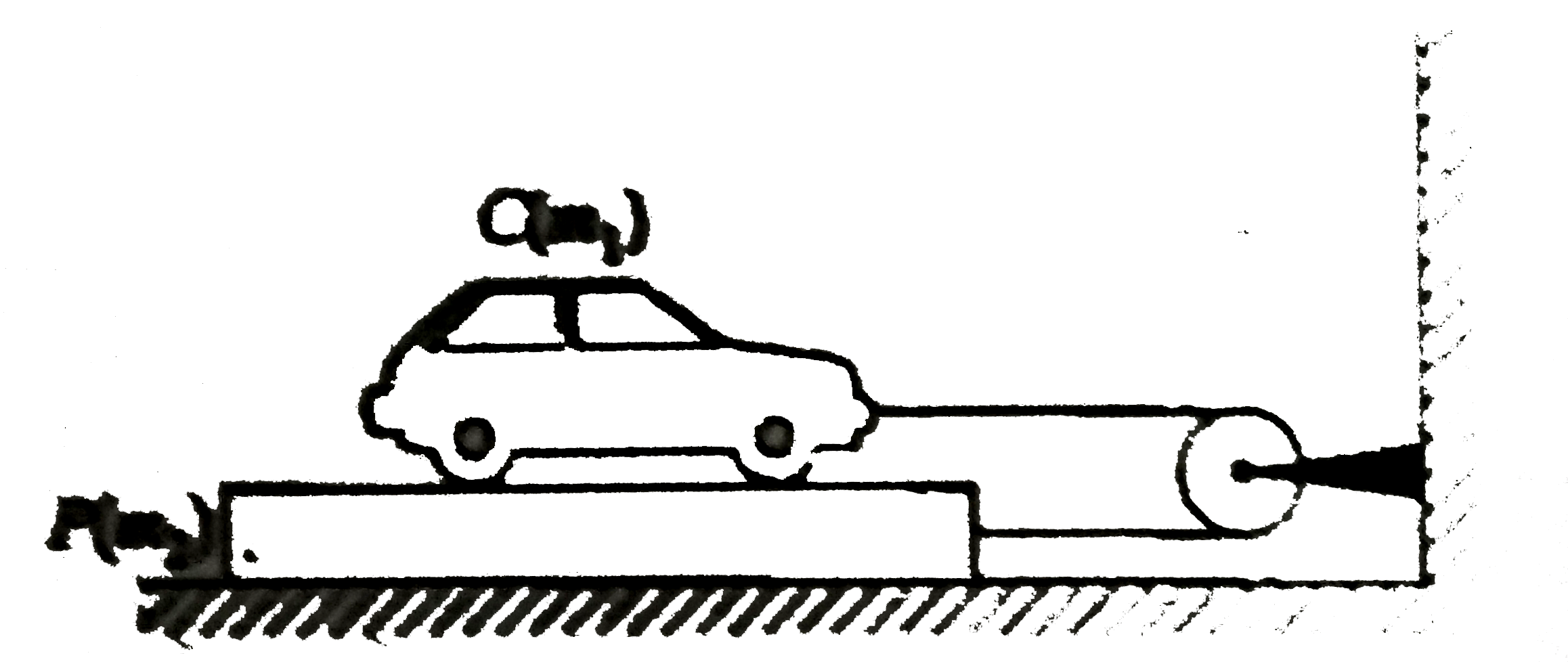
View Solution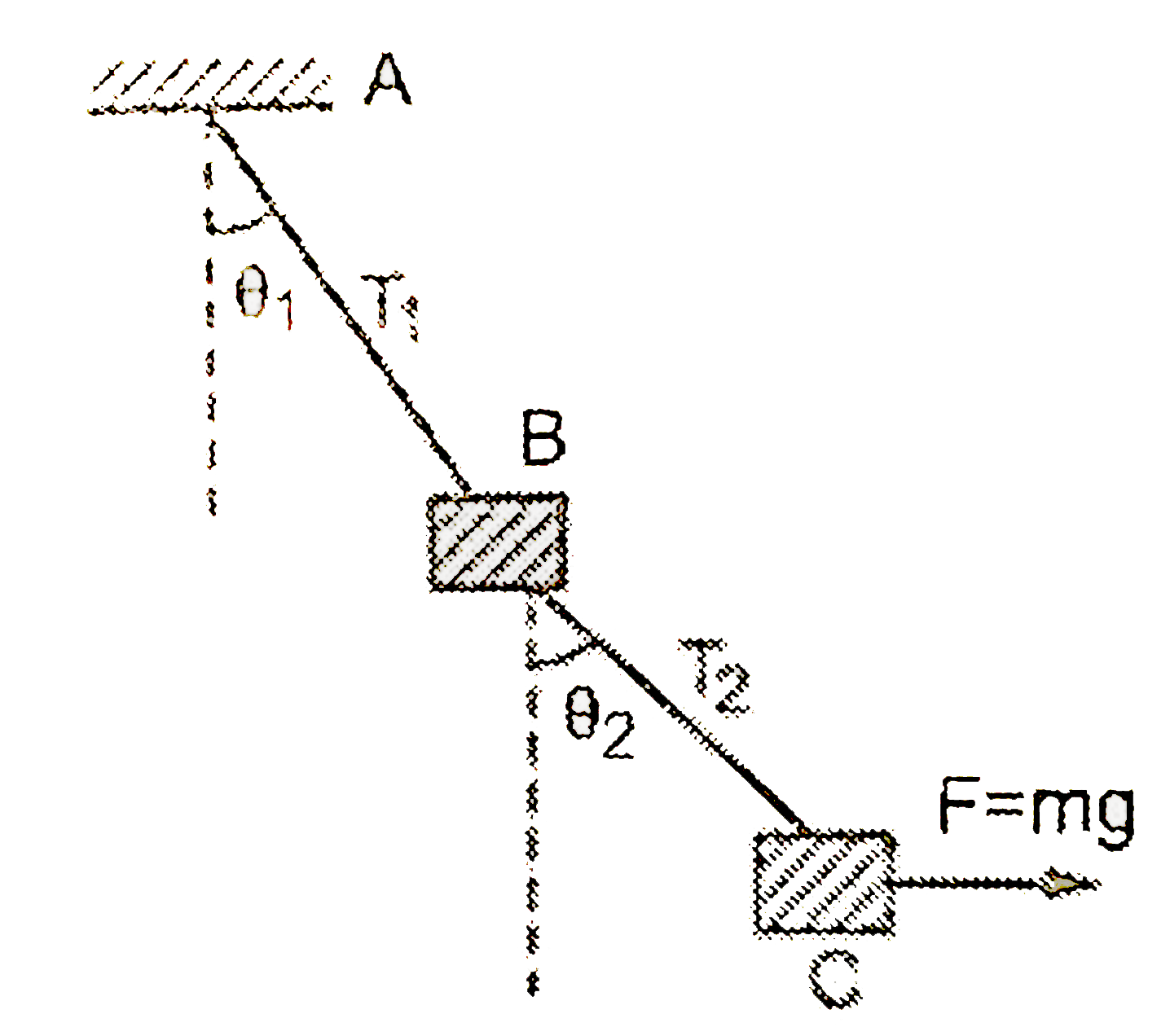
The blocks B and C in the figure have mass m each. The strings AB and BC are light, having tensions `T_(1)` and `T_(2)` respectively. The system is in equilibrium with a constant horizontal force mg acting on C.
View SolutionFive identical cubes each of mass 'm' are on a straight line with two adjacent faces in contact on a horizontal surface as shown in the figure-2.187. Suppose the surface is frictionless and a constant force P is applied from left to right to the end face of A. which of the following statements are correct :

View SolutionIn the arrangement shown in the figure-2.188 if system is in equilibrium `(g=10 m//s^(2))`
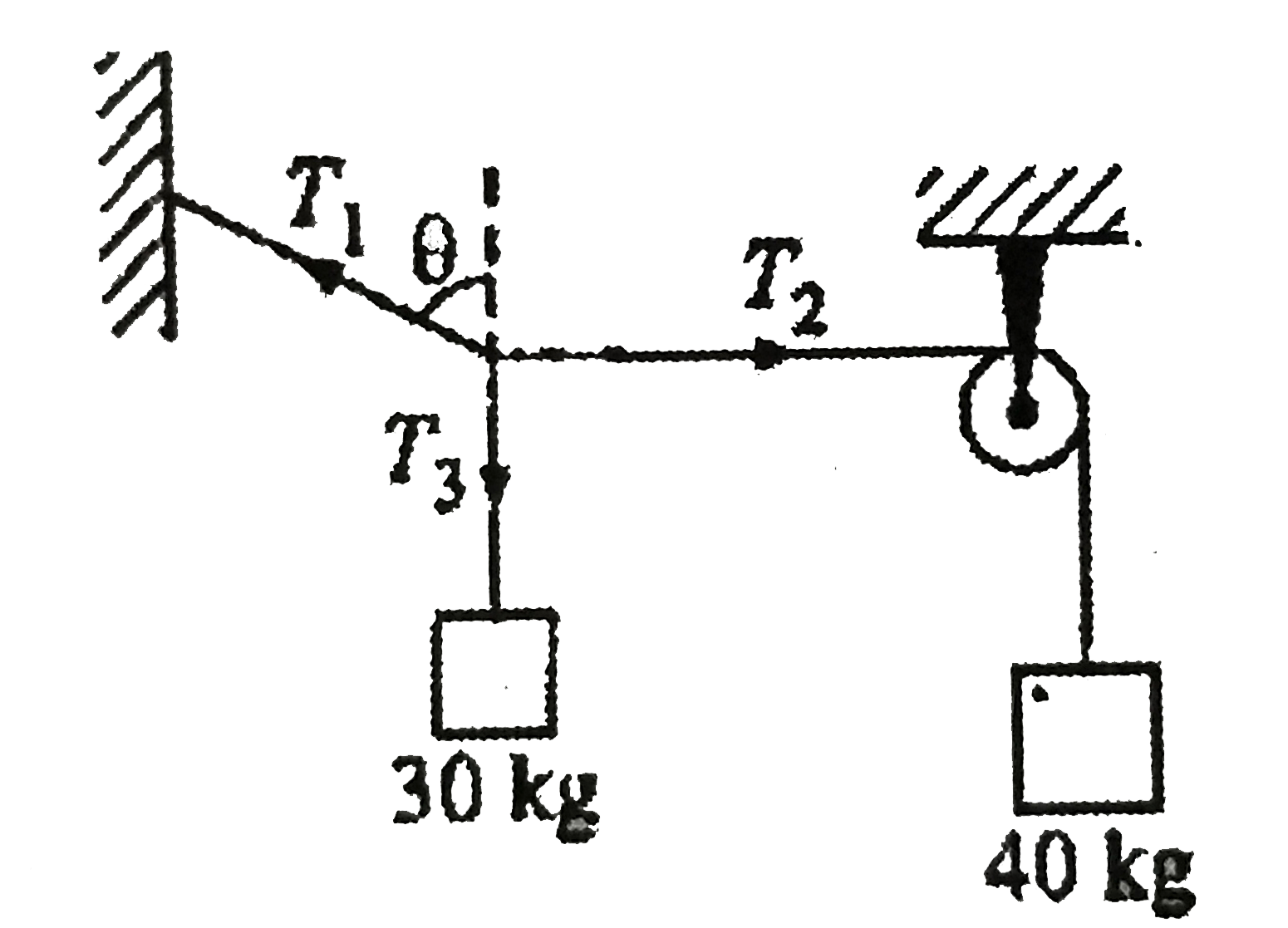
View SolutionA cart of mass `0.5kg` is placed on a smooth surface and is connected by a string to a block of mass `0.2 kg.` At the initial moment the cart moves to the left along a horizontal plane at a speed of `7m//s ("Use "g=9.8m//s^(2))`
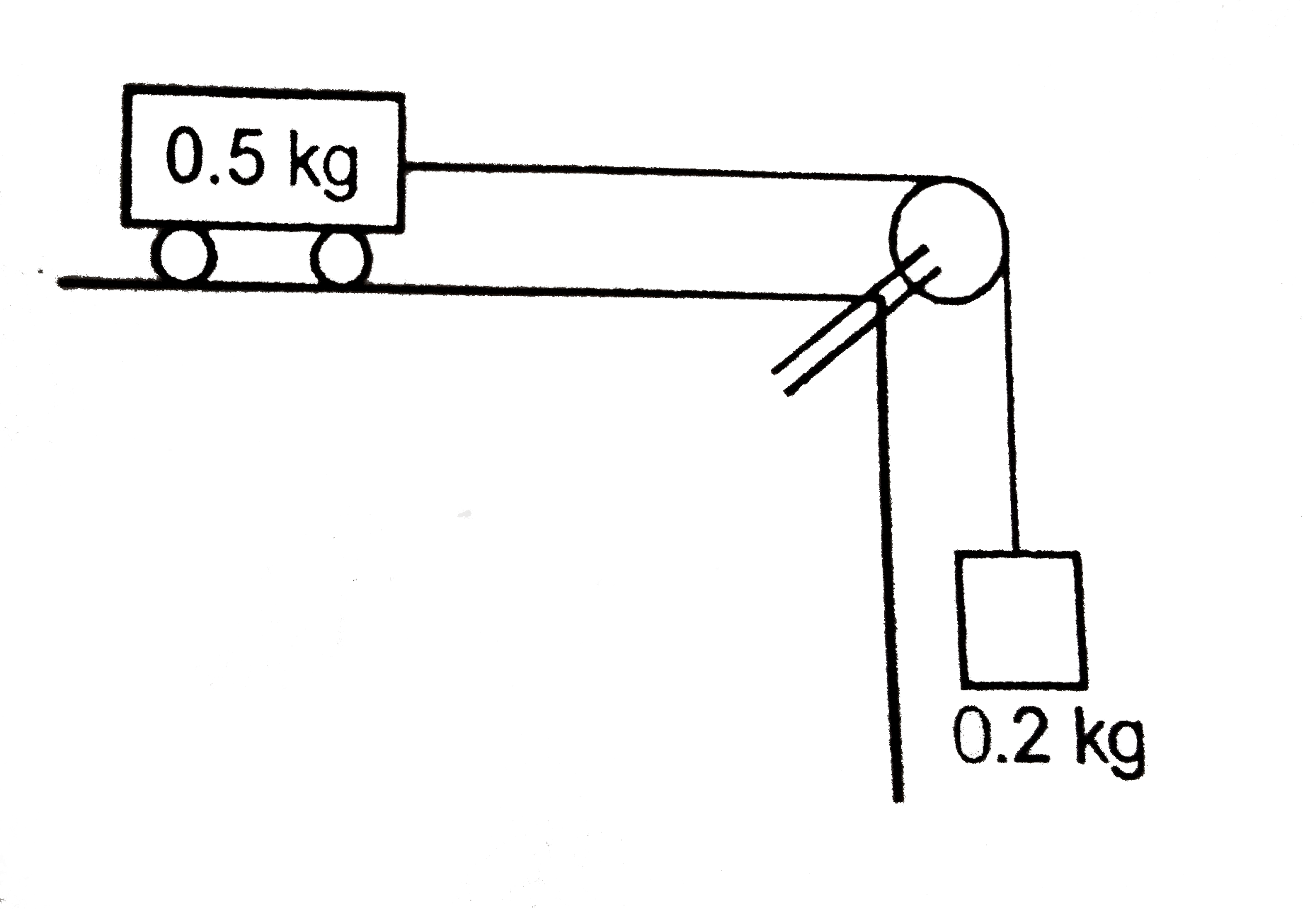
View SolutionA block of weight `9.8N` is placed on a table. The table surface exerts an upward force of `10N` on the block. Assume `g=9.8m//s^(2)`.
View SolutionA 10 kg block is placed on a horizontal surface whose coefficient of friction is 0.2.A horizontal force P = 15 N first acts on it in the eastward direction. Later, in addition to P a second horizontal force Q = 20 N acts on it in the northward direction: (Take `g= 10m/s^(2)`)
View SolutionTwo identical blocks are connected by a light spring. The combination is suspended at rest from a string attached to the ceiling, as shown in the figure-2.190 below. The string breaks suddenly. Immediately after the string breaks:
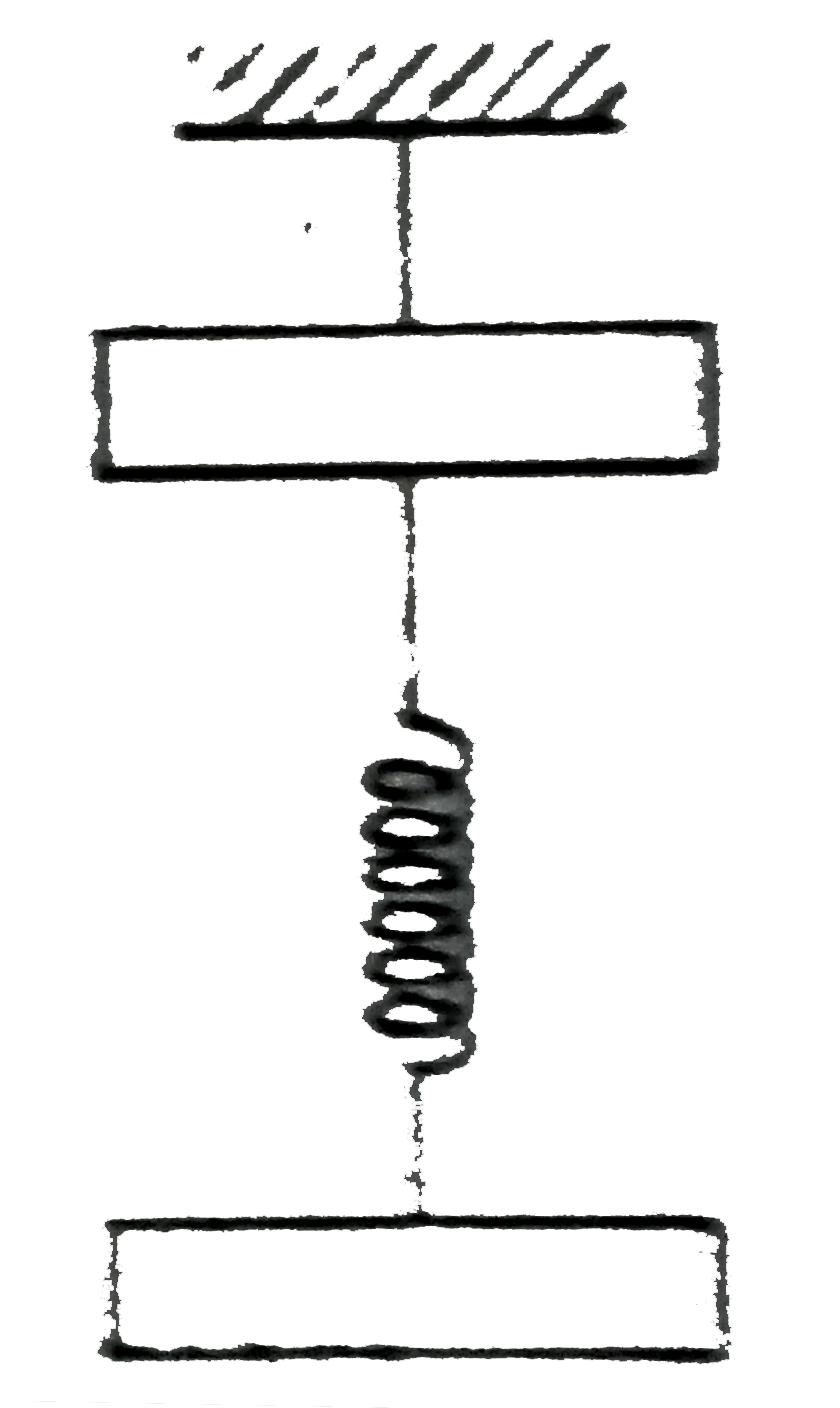
View SolutionA block of mass m is pulled by a constant powert `P` placed on a rough horizontal plane. The friction coefficient the block and surface is `mu`. The maximum velocity of the block is.
View SolutionThe ring shown in fig. is given a constant horizontal acceleration `(a_(0)=gsqrt(3))`. The maximum deflection of the string from the vertical is `theta_(0)`. Then
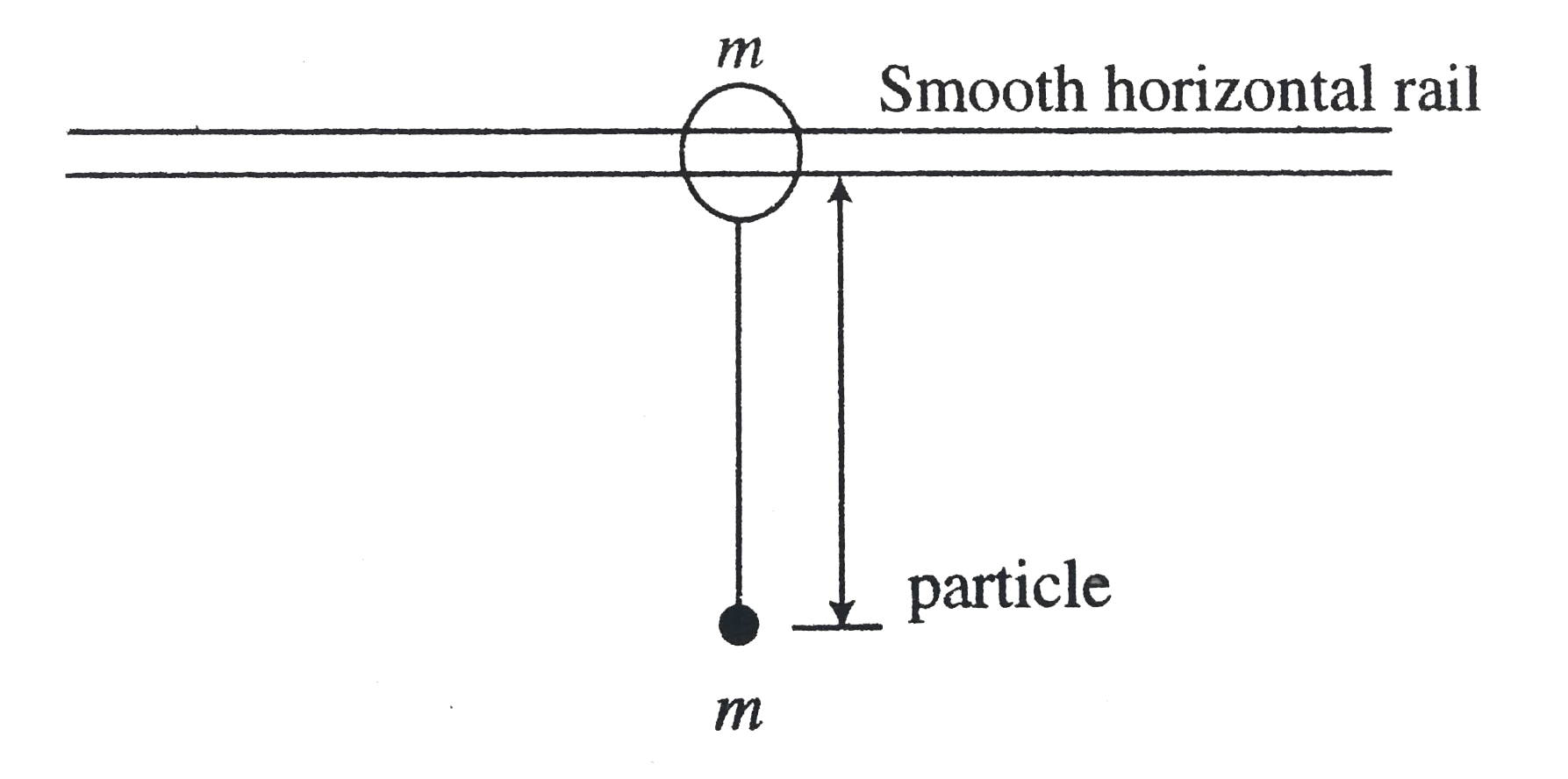
View SolutionIn the adjacent figure there is a cube having a smooth groove at an inclination of `30°` with horizontal in its vertical face. A cylinder A of mass 2kg can slide freely inside the grove. The cube is moving with constant horizontal acceleration `A_(0)` parallel to the shown face, so that the slider does not have acceleration along horizontal.
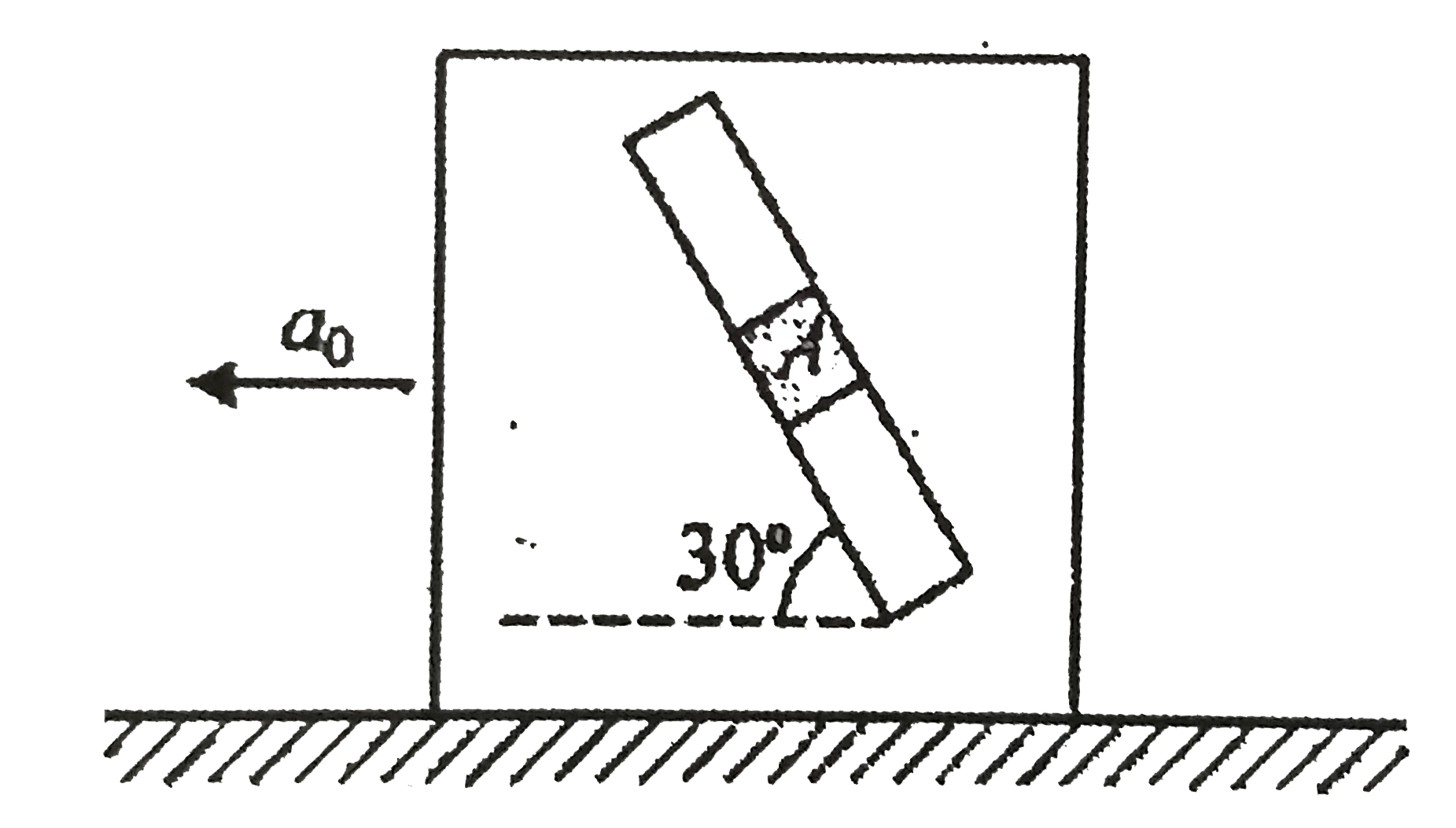
View SolutionTwo blocks of masses `m_(1)` and `m_(2)` are connected through a massless inextensible string .A block of mass `m_(1)` is placed at the fixed rigid inclined surface while the block of mass `m_(2)` hanging at the other end of the string which is passing through a fixed massless frictionless pulley shown in figure The coefficient of static friction between the block and the inclined plane is `0.8` The system of masses `m_(1)` and `m_(2)` released from rest
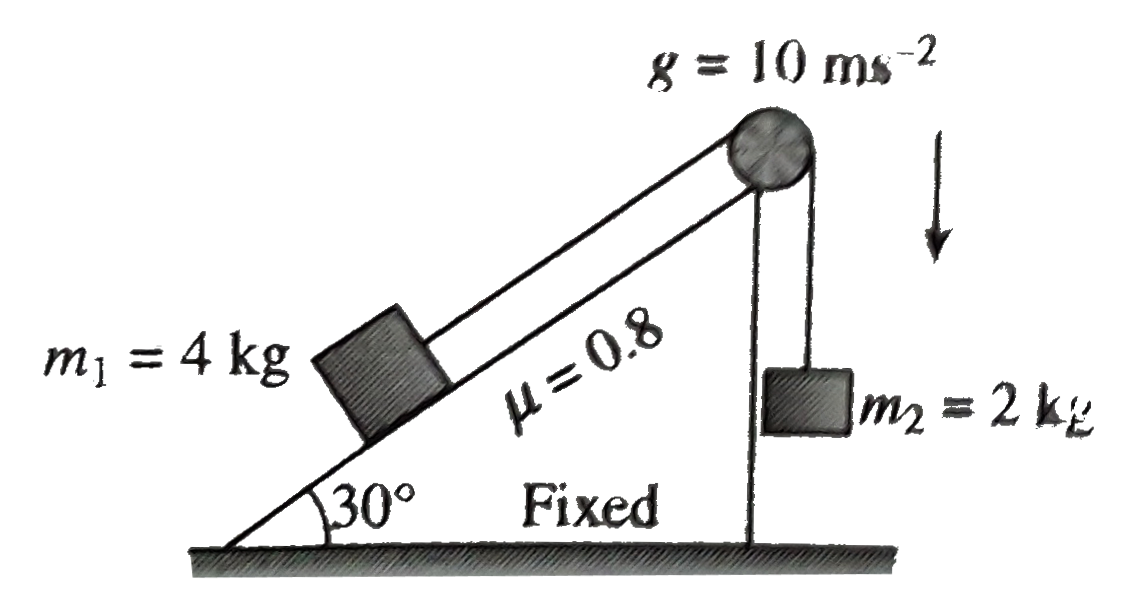
View SolutionFigure shown a block of mass m placed on a smooth wedge of mass M. Calculate the minimum value of M' and tension in the string, so that the block of mass m will move vertically downwards with acceleration `10ms^(-2)`
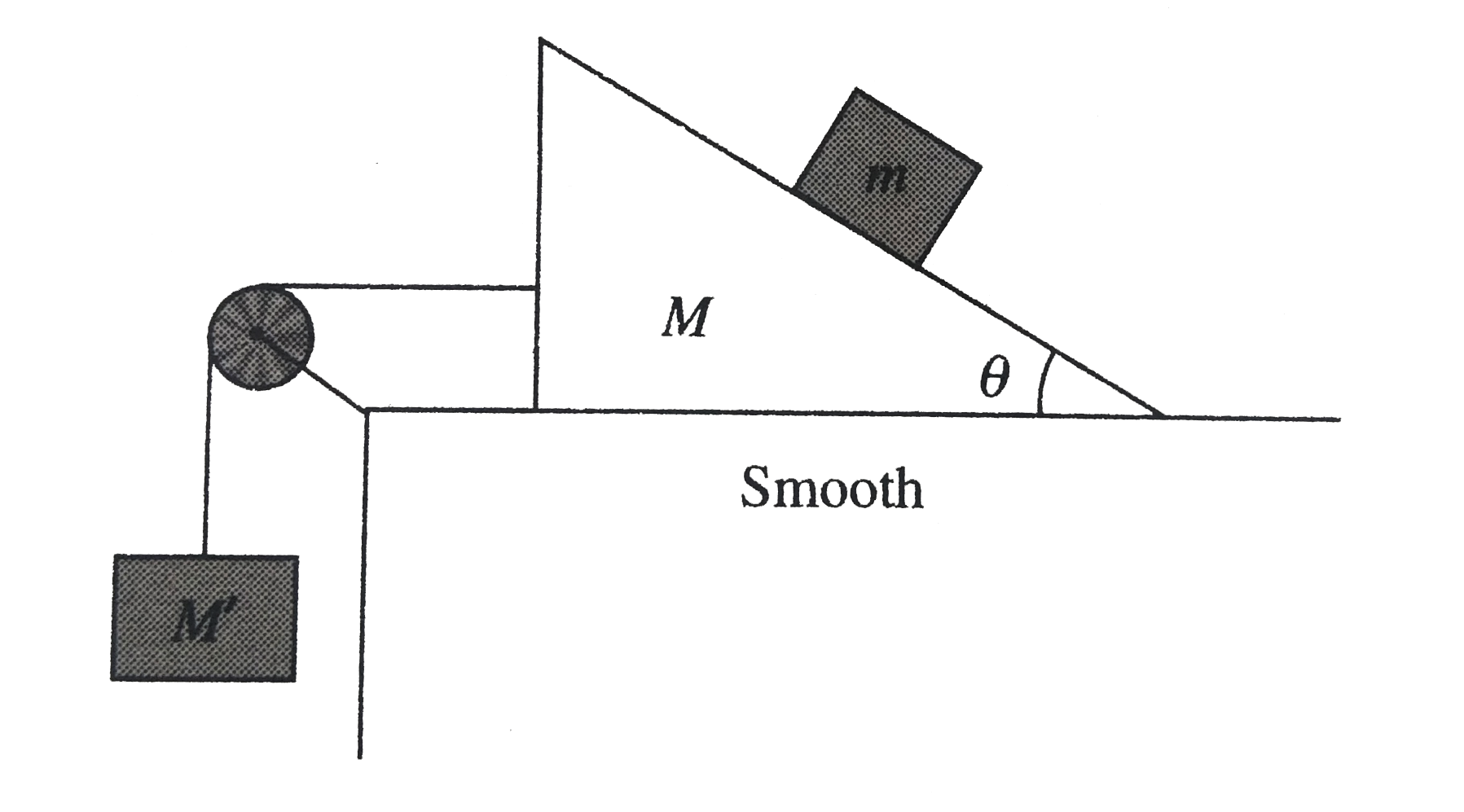
View SolutionIn fig., a man true mass M is standing on a weighing machine placed in a cabin. The cabin is joined by a string a body of mass m. Assuming no friction, and negligible mass of cabin and weighing machine, the measured mass of man is (normal force between the man and the machine is proportional to the mass)
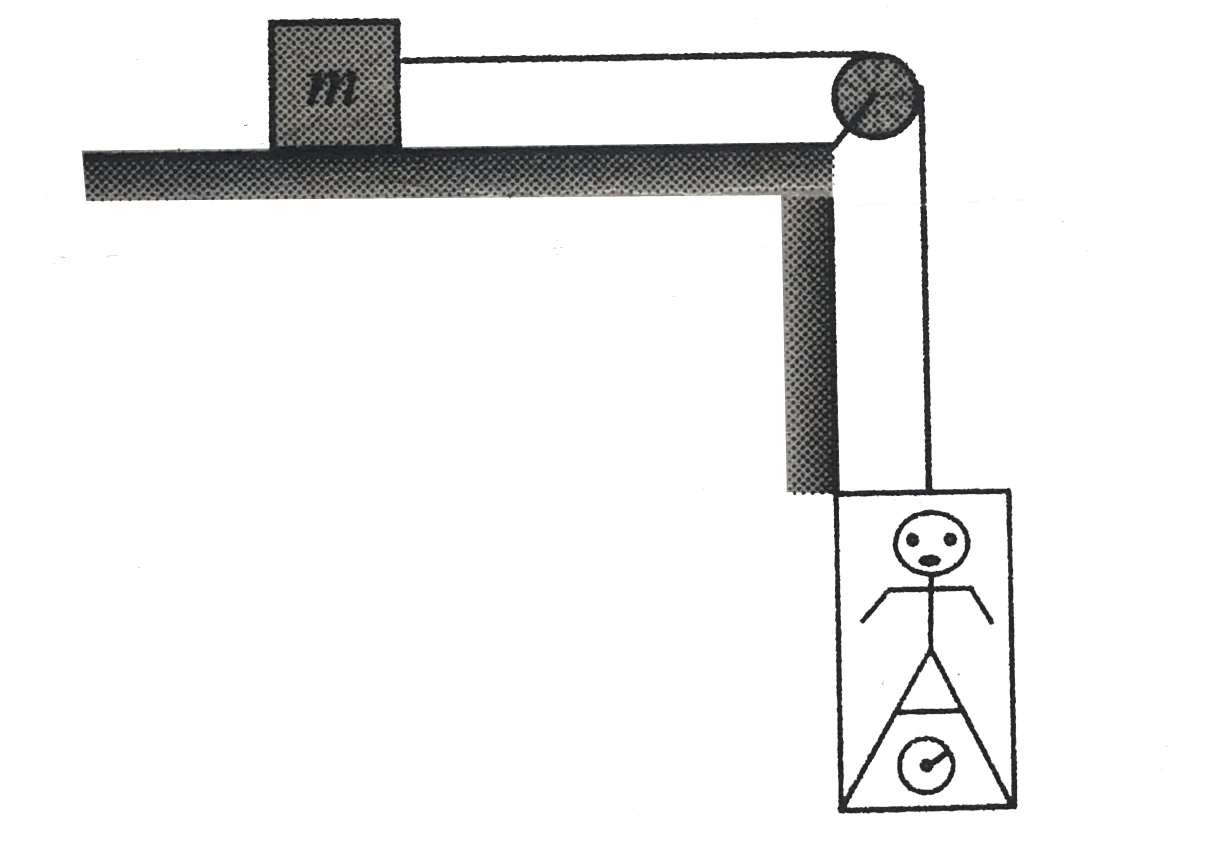
View Solution
Advance MCQs questions and complete solutions for chapter NEWTONS LAWS OF MOTION of GK PUBLICATIONS PHYSICS (HINGLISH) of Class 11